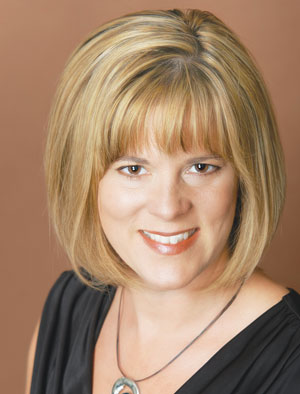Members of the family law bar should open their minds to the prospect of alternative business structures in Ontario, says an Ottawa lawyer championing looser rules for law firm ownership.

Julie Audet, one of the founders of the boutique firm Family Law in a Box, sat on the County of Carleton Law Association’s alternative business structures working group as it prepared a submission to the Law Society of Upper Canada on proposals to allow non-lawyer ownership of law firms. She found a high level of skepticism towards the idea among her fellow family lawyers.
“I thought there would be a whole lot of support for ABS from the family bar but I’ve been quite disappointed by the response,” says Audet. “I think that maybe it’s because family lawyers who do traditional work don’t think outside the box enough. I raise my hat to them because it’s a hard industry to work in, but the focus is on legal expertise and legal work when I think most people agree that is not what clients need most.”
Katharina Janczaruk, who chairs the Family Lawyers Association, says while the group has yet to take a formal position, her own views are in line with those of the Criminal Lawyers’ Association and the Ontario Trial Lawyers Association, two major opponents of alternative business structures.
Janczaruk says she has yet to see any evidence that new ownership rules would do anything to tackle access to justice in the family law sector. “Just having services centralized or large entities involved doesn’t necessarily lead to efficiencies,” she says. “Access to justice is an issue that is centred around properly funded legal aid, and I don’t see how this enhances it. If anything, it suggests a lesser type of service.”
In its submission to the LSUC’s working group on the issue, the Ontario Bar Association reported concerns from members that alternative business structures could precipitate the extinction of lawyers working in areas such as criminal and family law due to the inability to commoditize their legal services. “When you talk about something like questions of child custody and access, they’re not the sorts of things that can be easily shoehorned into some kind of form-filling exercise,” says Quinn Ross, a Goderich, Ont., lawyer who chaired the OBA’s working group on alternative business structures.
Ross says family lawyers who provided feedback to the working group also expressed a fear that looser ownership rules for law firms could lead to increased involvement by paralegals and other non-lawyers in the provision of family law services.
“The conversation has to start about what requirements there will be for individuals involved in the delivery of services in an area as sophisticated as family law,” says Ross. “It’s an incredibly challenging area of law to practise in because you need to be able to keep abreast of changes that are happening extremely quickly.”
Ross says the emphasis on alternative business structures as a solution to access to justice could actually damage efforts to improve the affordability of legal services. “There is some danger in it being seen as a panacea because it could take some of the pressure off the existing problems in family law where there are still a lot of issues,” he says.
Janczaruk says she would rather see family lawyers concentrating their efforts on pushing for a reformed family justice system. “I just don’t see why so much time and attention is going into this when we could be focusing on court resources, legal aid funding, and other more immediate concerns,” she says.
But that “is never going to happen,” according to Audet, who suspects the resistance to alternative business structures may be less about “protecting the public and more about protecting the profession.”
“We’ve been talking about a reformed system for 20 years and nothing has happened,” she adds.
In the absence of wholesale change to family justice in Ontario, Audet says the current proposals offer opportunities to improve the family law experience for the general public.
Under looser ownership rules, Audet plans to offer clients a series of related services by partnering with professionals in areas including financial advice, psychotherapy, and social work.
“As a lawyer, I pick up the pieces for clients and try to help them emotionally, but it’s not something I’m trained to do,” she says.
“They might be better off speaking with a therapist as the main person who helps them through this and then the lawyer can come in when they are needed. Right now, a client has to retain three or four different professionals from three or four different places and there’s no integration.”
Judging by the response to the LSUC’s proposals, Audet believes the weight of opinion in the legal profession may be against her. However, she’s hopeful the law society will remain open to more incremental change to the ownership rules in the event benchers end up rejecting alternative business structures.

 Julie Audet, one of the founders of the boutique firm Family Law in a Box, sat on the County of Carleton Law Association’s alternative business structures working group as it prepared a submission to the Law Society of Upper Canada on proposals to allow non-lawyer ownership of law firms. She found a high level of skepticism towards the idea among her fellow family lawyers.
Julie Audet, one of the founders of the boutique firm Family Law in a Box, sat on the County of Carleton Law Association’s alternative business structures working group as it prepared a submission to the Law Society of Upper Canada on proposals to allow non-lawyer ownership of law firms. She found a high level of skepticism towards the idea among her fellow family lawyers.